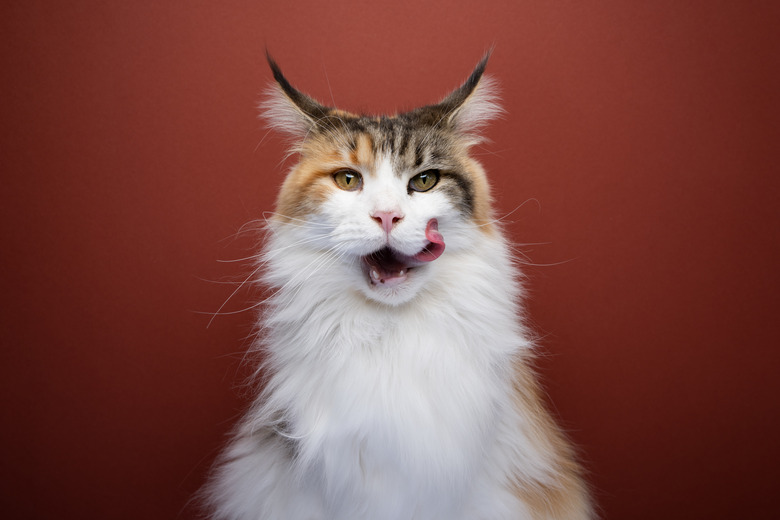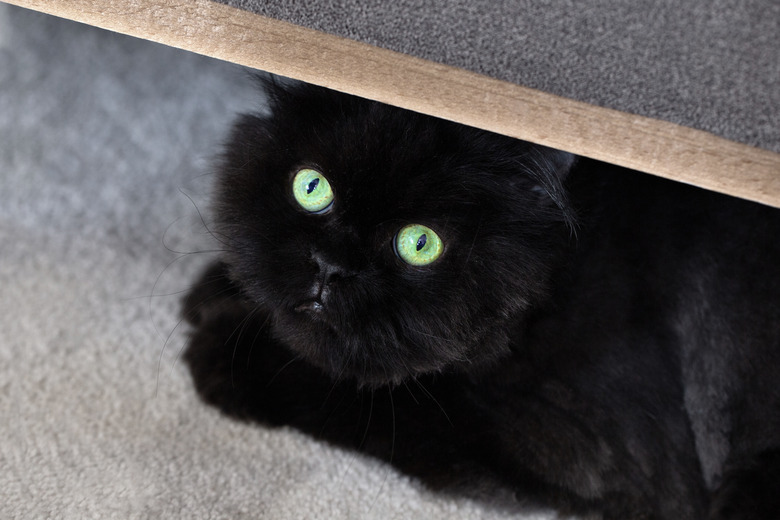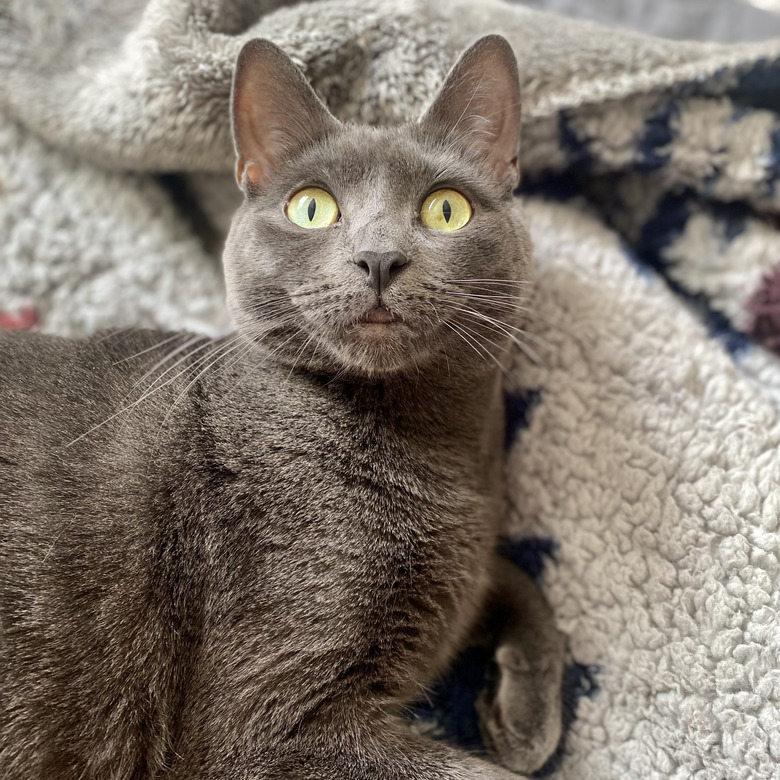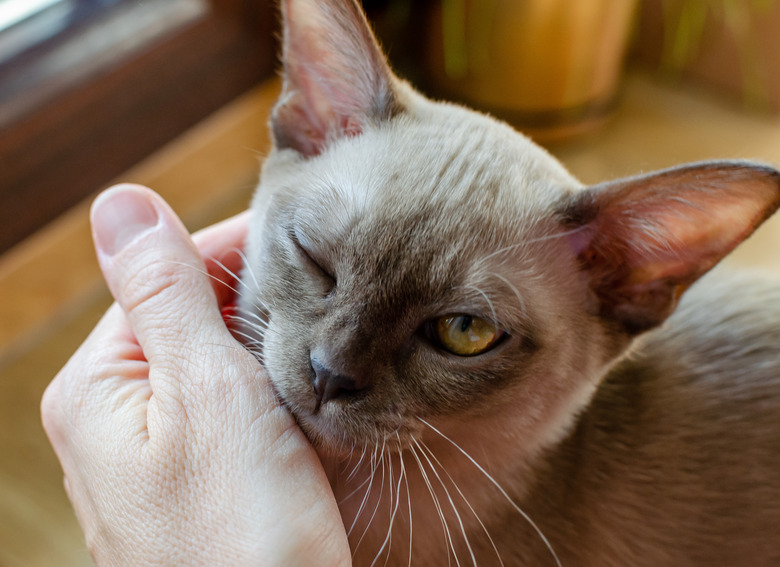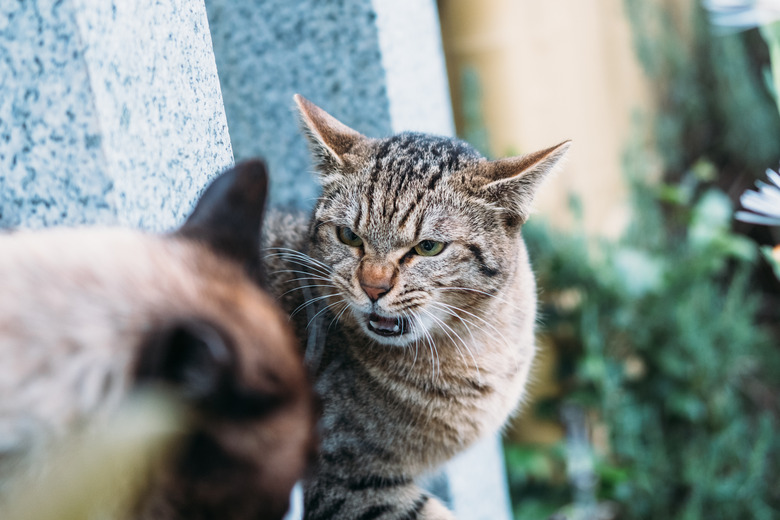Why Does My Cat Stare At Me?
Our feline friends do a number of things that may leave us puzzled, including staring us down for seemingly no reason at all. Why do cats stare at people? Well, that's a tough question to answer as it will depend on the cat and the situation at hand, but most of the time, a staring cat can likely be chalked up to curiosity, attention-seeking, or an attempt to have a need met (especially around dinner time.) Sometimes, a lingering look can even signify love feelings when accompanied by a perfectly-timed blink, and in others, a stare-down can be a warning to stay away.
Reasons why cats stare
Reasons why cats stare
Cats stare at their pet parents and other humans for a number of reasons. One reason that a cat might look at you is to get your attention, especially if it's around their feeding time, or if they're stressed, uncomfortable, or otherwise seeking soothing from their most trusted friend. Cats are also curious creatures who use their sight to navigate the world around them and keep themselves safe within it, so if your cat is maintaining their glare for more than a few seconds, they could just be attempting to gather information they're unsure about. This is especially common for kittens, cats who are new to their current home, and cats seen exploring the outdoors.
Some people guess that cats might be appearing to stare at people when really, they're just trying to get a better look at what they're fixated on. Cats tend to be more near-sighted than people, which can make it hard for them to get a clear, crisp view of what they're looking at. So, if you're standing more than 20 feet away from your cat, they may just be having a tough time seeing you, which can be alarming for a prey animal. Despite their near-sightedness, cats are believed to possess the capacity to see ultraviolet light, so it's possible that they're just examining something that we can't technically see.
Kitty stares could also signify a confrontation, as cats will often maintain eye contact with other cats during territorial disputes or other altercations. In order to identify if a cat's stare indicates a happy cat or an angry feline, you'll want to familiarize yourself with common body posture cues displayed by cats.
Cats and body language
Cats and body language
Of course, the eyes would need to say a lot when the mouth really doesn't. Cats, like dogs, use body language to express themselves to those around them, including us, and the body doesn't stop at an arched back or a puffed-up tail. A cat's face, namely, their eyes, certainly expresses what a feline is thinking, feeling, and about to do next. Generally, sustained, direct eye contact among cats indicates that a dispute over territory or some other precious resource is going down, and you'll often notice additional body language cues that support this. Cues in a stare-down circumstance can include an arched or bowed back, a puffed-up tail, hissing, growling, and little to no blinking.
Positive indicators through body language include head butting, rubbing their bodies against you, kneading, purring, and relaxing on their backs. Additionally, blinking is another way your feline friend express themselves by using nonverbal communication. A cat caught in a stare-down with another animal will hardly blink, signifying that they're on high alert. A relaxed and comfortable cat will not only blink as a sign of affection, they'll blink slowly, in an almost exaggerated way. Known as the "slow blink," this brand of cat behavior is done as a positive communication tool, both between cats, as well as between cats and humans.
The slow-blink
The slow-blink
A 2014 study published in Scientific Reports examined 21 cats from 14 different households, along with 14 cat caretakers, and the study was done in a familiar room in the cat's home. The research showed that many slow-blinks from cats were followed by a series of half-blinks before the cats studied would narrow their eyes as if squinting. Some cats who participated in the study even closed their eyes completely. When the human counterparts in the experiment slow-blinked at the cats, either to initiate communication or in response to a cat's blinking, many of the cats would either slow-blink back or approach the person in a calm and friendly way, suggesting what researchers referred to as "positive emotional communication between cats and humans."
When to be concerned
When to be concerned
When examining whether your cat is staring at you or staring you down, one helpful detail to take note of, when possible, is the size of their pupils. Usually, pupils that are pin-point tiny, or wide and dilated, can be signs that your cat is distressed. Tiny pupils are usually indicators that a cat is angry, upset, or irritable, so it may be best to keep your distance if you notice it. Dilated pupils in cats usually occur when a feline is scared, nervous, or agitated. Of course, either of these can also occur when a cat is focused on something, so be sure to read your cat's other body language to determine if there's something you can do to make them feel more secure and soothed, or if you're both better off with a little space until things settle down.
The bottom line
The bottom line
Cats stare at people for a number of different reasons, although most of them are harmless and not to be terribly concerned over. Most of the time, cats stare or maintain eye contact with people when the cat feels at ease, which is especially true when a cat's eyes become narrow or even closed when facing someone. A slow blink can indicate a happy cat, which can be confirmed by additional mannerisms that signify a comfortable feline friend, such as a relaxed body, a soft purr, kneading, and cuddling. If you find yourself in a staring contest you may have an angry cat on your hands, which can usually be confirmed by body language cues including a raised or arched back, a puffed-up tail, hissing, or growling.
